The Taking of Pelham 1 2 3
When Sony bought MGM it acquired the rights to most of their back catalogue and so when Screenwriter Brian Helgeland was after a new project, he and producer Todd Black went through the list to see what was available to remake. One of the films was the 1974 thriller The Taking of Pelham One Two Three and, as Sony also had the rights to John Godey's novel, Helgeland began working on a screenplay which he and Black then took to the studio hoping they would fund the project. Fortunately for them, Denzel Washington was already on board and Sony liked the idea which led to Tony Scott coming on board to direct.
The premise of the film stays faithful to Godey's novel and Joseph Sargent's adaptation: a subway train is hijacked and a ransom demanded with the condition that, if the money is not delivered on time, then a passenger will die every minute that passes. This puts Garber, the train dispatcher overseeing the trains at the heart of the action as he negotiates with a ruthless criminal. The original was more or less a simple heist movie with Robert Shaw's gang donning disguises, false accents and using pseudonyms (the inspiration for the Mr. [insert colour] idea in Reservoir Dogs) and going up against transit policeman Garber, played by Walter Matthau.
This re-imagining teams up Denzel Washington (as Garber) with John Travolta, with Travolta as Ryder, the mysterious criminal. The new script also brings in developments in technology, with laptops with WiFi, 24 hour news and cellular phones all part of the narrative.
In a slickly planned operation, Travolta's gang takes the Pelham 123 subway train and moves is to an area deep within the underground network before uncoupling the front carriage and shutting off the power. Describing the passengers as 'commodities' with a combined value of $10,000,000.01 that must be paid within the hour, Ryder sets the clock ticking. It seems Ryder may have an ulterior motive as he sits and watches the stock market fall during the hour and his conversations with Garber.
Ryder is a charismatic individual who grows to like Garber and takes affront at the intrusion of the hostage negotiation team, led by Camonetti, so demands that Garber be brought back to the console as the voice on the other end of the line. As events play out, Garber must play for time and try to save the lives of people he's never met from someone he's only spoken to whilst Ryder researches Garber and forces him to confront his past. Meanwhile, clues that Ryder drops lead the authorities in a hunt for the hijacker's true identity.
Whereas the 1974 adaptation was stripped down and gritty, suiting the aesthetic of American cinema at the time, Scott's version is very slick with an incredible set for the MTA dispatch centre and he employs his traditional array of camera and editing tricks. Washington and Travolta have terrific rapport and Travolta was given free licence to improvise which really shows in his performance which is a little like Vincent Vega on acid. Denzel Washington has made a career of playing men with a great deal of gravitas and no humour and the same is almost true here with his Garber as an everyman, not the cop of the original (Washington didn't want to play another cop and even gained weight to help the 'everyman' look) . The film hangs on these performances and both men are excellent, ably supported by the likes of Luis Guzmán, John Turturro and James Gandolfini.
The work that went into making the film look as authentic as possible is evident, with location shooting and recreated sets adding to the realism. That said, Scott's penchant for visual flair occasionally detracts from the simple story with editing that is more frenetic than is necessary, camerawork that looks overcomplicated and helicopters flying past NYC.
The Taking of Pelham 1 2 3 is a very enjoyable and occasionally tense thriller with sterling performances from the whole cast and it's just the visual trickery and slightly limp ending that spoilt it for me.
The Disc
Extra Features
Though not in the Lord of the Rings league of amazing discs with hours of extra material, Sony have put together an extremely impressive disc with two commentaries and several featurettes. Proving that making good commentary tracks runs in the family, Tony Scott talks at length and in depth throughout the whole film providing a great deal of information about the shoot and his experiences of working with the actors, crew and various advisors. Complementing this well is the track with Brian Helgeland and Todd Black who provide more background information about the projects genesis and development and this track works with Scott's solo effort.
Running at 30 minutes, 'No Time To Lose: The Making of Pelham 123' is a fascinating look behind the scenes with plenty of B-roll footage and interviews with the principal cast and crew.
The 16 minute piece 'The Third Rail: New York Underground' shows you the reality of shooting in the subway and the work that went into replicating the carriage.
If commentaries aren't your thing, there's quite a bit of information covered in these two featurettes so you're not losing out massively. They are also presented in HD which is a nice touch.
Rounding off is the rather silly 'From the Top Down: Stylizing Character' in which Tony Scott gets a haircut (given the extent of his bald pate, it seems like a waste of money!) and talks about the importance of haircuts and facial hair with his hairdresser - it seems more a commercial for this upmarket salon than anything revealing or important.
Under the rather self aggrandising title 'Marketing Pelham' are two trailers for the film and there are also trailers for other Sony BD releases.
Using BD-Live, there is the option to watch the film with movieIQ which allows you to access the cast and crew filmographies, find out which piece of music is currently playing and read trivia about the film. I was sceptical but found it to be a worthwhile and informative addition.
The Picture
This isn't the kind of film to showcase a HD setup but the picture is extraordinarily good with inky blacks for the subway scenes and vibrant colours for the MTA. The level of clarity is extremely impressive and there is nothing lost in the darker scenes.
The Sound
The DTS-HD Master Audio surrounds you with the bustle of NYC, the chaos in the initial hijack and presents the dialogue flawlessly. As much of the film takes place as verbal jousting between Ryder and Garber, the sound needs to be clear and is so you don't miss out on anything even when the trains are rumbling around in the background.
Harry Gregson-Williams provides a suitable score which matches Scott's directorial style perfectly with a more amped up score than he usually writes and suits the action thriller very well.
There are a good array of other audio options and subtitles, the extra features are also subtitled and there is an audio descriptive track for the film.
Final Thoughts
The version of Pelham is a film of its time and unmistakeably Tony Scott. There are strong performances by the two leads and the film moves along at a fair old lick with some genuinely tense moments. The disc is very impressive and is one that I would recommend to fans of Scott's work. I'm not a huge fan of Tony Scott's ultra-stylized oeuvre and this reunited the writer, director and star of Man on Fire which I didn't particularly like but I still enjoyed this. I prefer the original but this is a pretty good film on a very good disc.
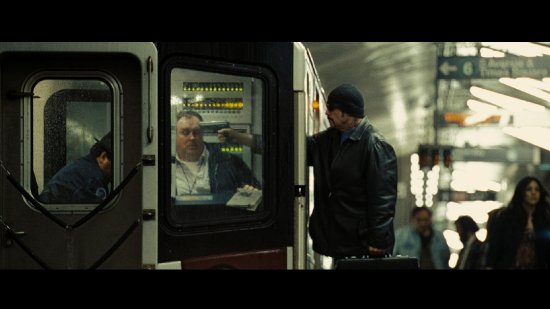
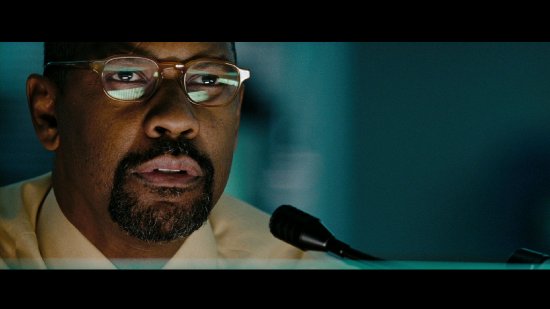
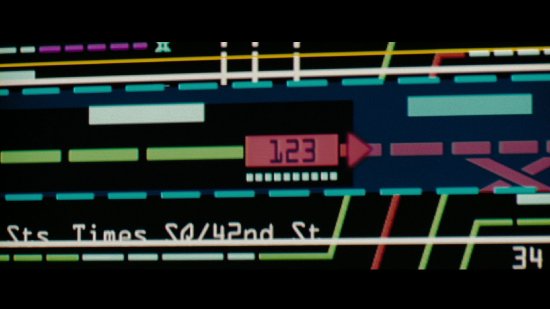
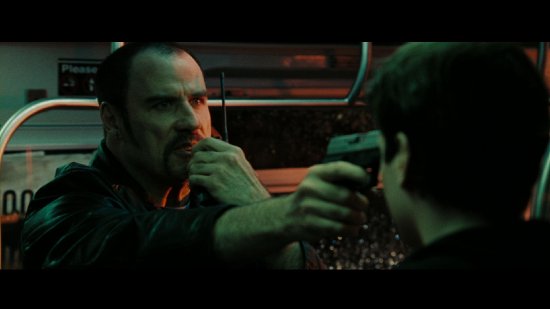
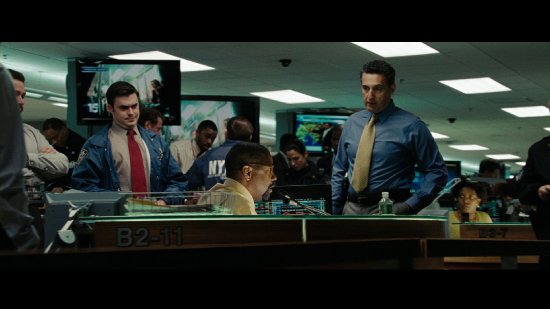
Your Opinions and Comments
Be the first to post a comment!